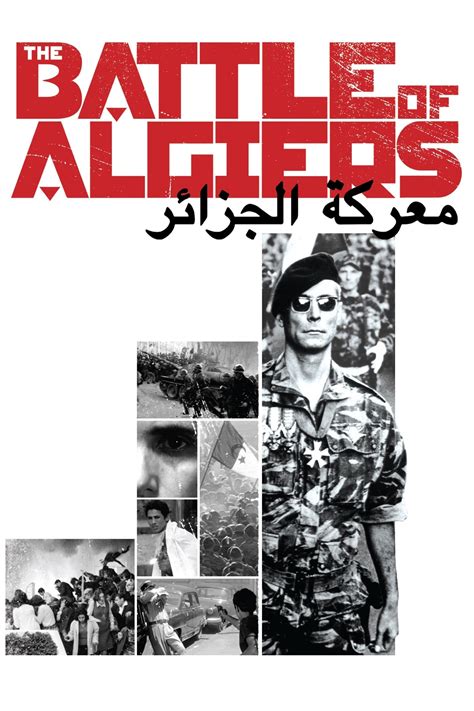The Battle of Algiers

Description:
The Battle of Algiers is a 1966 historical war film based on events during the Algerian War against French colonial rule. It depicts the brutal tactics used by both sides in the conflict, focusing on the guerrilla warfare tactics of the National Liberation Front and the French military response. The film is known for its gritty realism and is considered a classic of political cinema.Keywords:
Colonialism, Resistance, Guerrilla Warfare, Realism, Independence, Tactical Genius, IdeologicalconflictHow accurate is the movie The Battle of Algiers?
"The Battle of Algiers," directed by Pier Paolo Pasolini, is widely regarded as a highly accurate portrayal of urban warfare and the Algerian War of Independence against French colonial rule. While it takes artistic liberties for dramatic effect, the film effectively captures the complexities of guerrilla tactics, counterinsurgency operations, and the moral ambiguities faced by both sides. Its realistic cinematography and use of non-professional actors contribute to its authenticity. However, some critics argue it oversimplifies the political context and the broader implications of colonialism.
Is The Battle of Algiers worth watching?
"The Battle of Algiers" is widely regarded as a cinematic masterpiece. Directed by Pier Paolo Pasolini and released in 1966, it offers a gripping and realistic portrayal of urban warfare and the Algerian struggle for independence from French colonial rule. The film is acclaimed for its powerful cinematography, intense score, and thought-provoking themes about resistance, violence, and the complexities of colonialism. Its relevance continues today, making it a must-watch for those interested in history, politics, and film as an art form.
What was the point of The Battle of Algiers movie?
"The Battle of Algiers," directed by Pier Paolo Pasolini, is a powerful political film that depicts the Algerian struggle for independence from French colonial rule in the 1950s. The film highlights the complexities of urban warfare, the impact of colonialism, and the moral ambiguities faced by both the insurgents and the colonial powers. Through its realistic portrayal of guerrilla tactics, counterinsurgency operations, and the human cost of conflict, the movie serves as a commentary on the cycles of violence and the struggle for liberation, making it a timeless reflection on colonialism and resistance.
Who won The Battle of Algiers?
In "The Battle of Algiers," the conflict is primarily between the French colonial government and the Algerian National Liberation Front (FLN) during the Algerian War of Independence. The film portrays the struggle for control of Algiers in the late 1950s. While the French forces initially appear to suppress the FLN's insurgency, the film ultimately highlights the resilience and determination of the Algerian fighters. In reality, Algeria gained independence from France in 1962, marking a significant victory for the FLN and the Algerian people.
Explore More Categories: